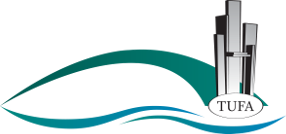Colleagues,
In the shadow of the unfolding tragedy in Israel and Gaza, TUFA’s Executive Committee has finalized a “Statement on Academic Freedom in Times of Conflict” which draws on recent statements made by our provincial and national affiliates.
TUFA unequivocally supports the academic freedom of its members. This freedom includes the right to pursue research and open inquiry in an honest search for knowledge that is free from institutional censorship, including that of the government.
TUFA acknowledges that the freedom from political and institutional censure is especially critical at times of war and conflict when scholarly voices are an important corrective to information gaps, confusion, and disinformation.[1] The exercise of our academic freedom, engagement in civil discussion, debate, and advocacy are essential elements of peace(making) in an open and democratic society.
TUFA stands with our provincial affiliate, OCUFA, in deploring the actions taken by the Minister of Colleges and Universities to chill the climate for academic freedom on Ontario campuses. Given her portfolio, Minister Dunlop should be defending the robust exchange of contentious ideas on our campuses, not seeking to mute it.
TUFA supports anti-racist and decolonial initiatives in Canadian educational institutions and opposes antisemitism, Islamophobia and anti-Palestinian racism, along with all other forms of racism and hatred as evidenced by the Discrimination and Harassment Policy negotiated into the TUFA Collective Agreement (Appendix C).
TUFA is committed to protecting any academics who are targeted because of their scholarship, teaching, political opinions, or extramural utterances and encourages any TUFA member experiencing harassment or attempts to limit their academic freedom to contact the TUFA office. TUFA will vigorously defend any member facing violations of their academic freedom or other employment rights.
TUFA calls upon our institution to 1) implement measures to protect our members from the chilling effect that targeted attacks, recrimination, and harassment can have on campus; to 2) ensure procedural fairness in dealing with complaints against any member of the campus community; and to (3) reaffirm the University’s commitment to academic freedom.
[1] Please refer also to the statement issued on November 2nd, 2023 by the Canadian Association of University Teachers on “Academic Freedom in Times of Conflict.”
